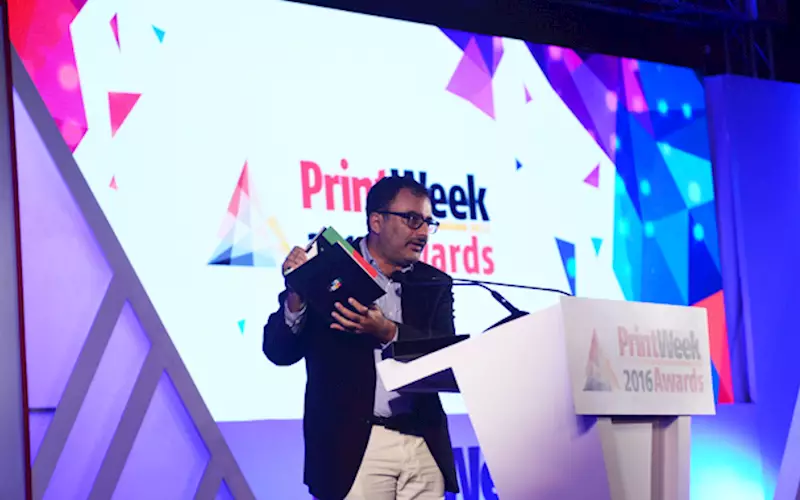Kashtam, Kashtam, It has become ‘cashtam’
Children, when was demonetisation born?
Asks the school teacher in 2116
A thousand years ago, the children reply
A hundred years ago, the children reply
Last month, the children reply
No one knows
Children, what does this demonetisation do, asks the school teacher
It does good, the children reply
It does bad, the children reply
No one knows
In 2116, like in 2016
No one knows
08 Dec 2016 | By Ramu Ramanathan
This is perhaps the best WA ping I received on the above subject. Most print CEOs and business heads I spoke to told, “We are going through a torrid period. It looks like an exceptionally tough time.” But almost everyone (including those whose sales have taken a hit said, they are “looking forward to bigger and better things in 2017.”
In the meantime there are three things, that have been transpiring.
The action is heating up for the 13th edition of PrintPack 2017 which will be hosted from 4-8 February 2017 at the India Expo Centre, Greater Noida.
As Sanat Bhai of Manugraph says, “The Prime Minister’s ‘Make in India’ is the message at PrintPack 2017. Indian manufacturers like TechNova, Lineomatic, Manugraph, TPH, Autoprint, Welbound, etc are targeting the Indian domestic market that is ready to spend.”
Meanwhile International PackTech Ind returns to Mumbai in December. The good news is, the corrugated board packaging market is expected to notch Rs 26,900 crores in 2021.
Smithers Pira’s latest report, The Future of Global Corrugated Packaging to 2021, states the actual consumption of corrugated board packaging by end-users totalled 128.6m tonnes in 2015, worth more than Rs 22,200 crores to converters. In 2021, consumption will stand at 180m tonnes.
Growth in corrugation was attributed to China and India. My colleague Rushikesh Aravkar, who is in China shares a factoid. He said, “This growth in China was attributed to their government embarking on a programme of mill closures to rid the market of outdated and inefficient paper machines and instead focusing on linerboard and fluting machines less than two metres wide and slower than 80m/min.”
Meanwhile even as we were heading to press, came the news, S Chand and Company has picked up a majority stake in Kolkata-based publisher Chhaya Prakashani, for an undisclosed sum.
According to a report in the Economic Times, “the transaction was done at a total enterprise value of Rs 220 crore”. This makes it one of the largest deals to have been struck in the country’s education content space.
The S Chand deal dovetails neatly into the Nielsen India’s latest findings about the K-12 education system in India. This is one of the largest in the world, with more than 1.5 million schools and 259 million students enrolled. Statistics shows that schools have grown at a CAGR of 2.7 per cent, from 1.36 million in 2010-11 to 1.52 million in 2014-15, while enrolment has grown from 24.7 million in 2010-11 to reach 259 million students in 2014-15, a CAGR of 1.1 per cent.
The report estimates that the K-12 Indian book market would grow at a CAGR of 19.6 per cent, from Rs 22,170 crores in 2014-15 to Rs 54,190 crores by 2019-20.
With its textbook focus, S Chand is hoping to establish its potential within the school book publishing sector in India. When we met Hemanshu Gupta of S Chand, he was clear that “the school going population (children aged 5-14) in India in 2015 constitute 19.4 per cent of the total population of the country, more than three times the size of the UK, US and Brazilian population together.” And S Chand is their loyal print companion from those 10 years.
As we head into 2017, best wishes and season’s greetings to all.











 See All
See All